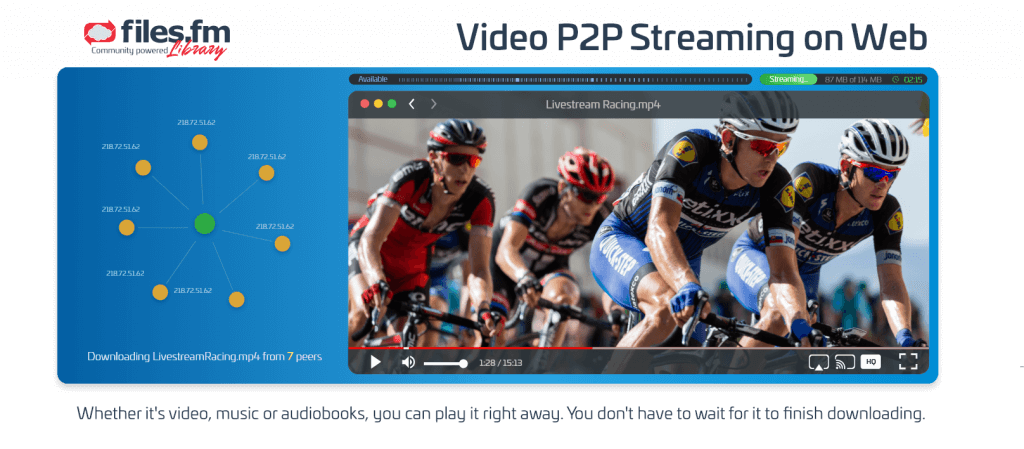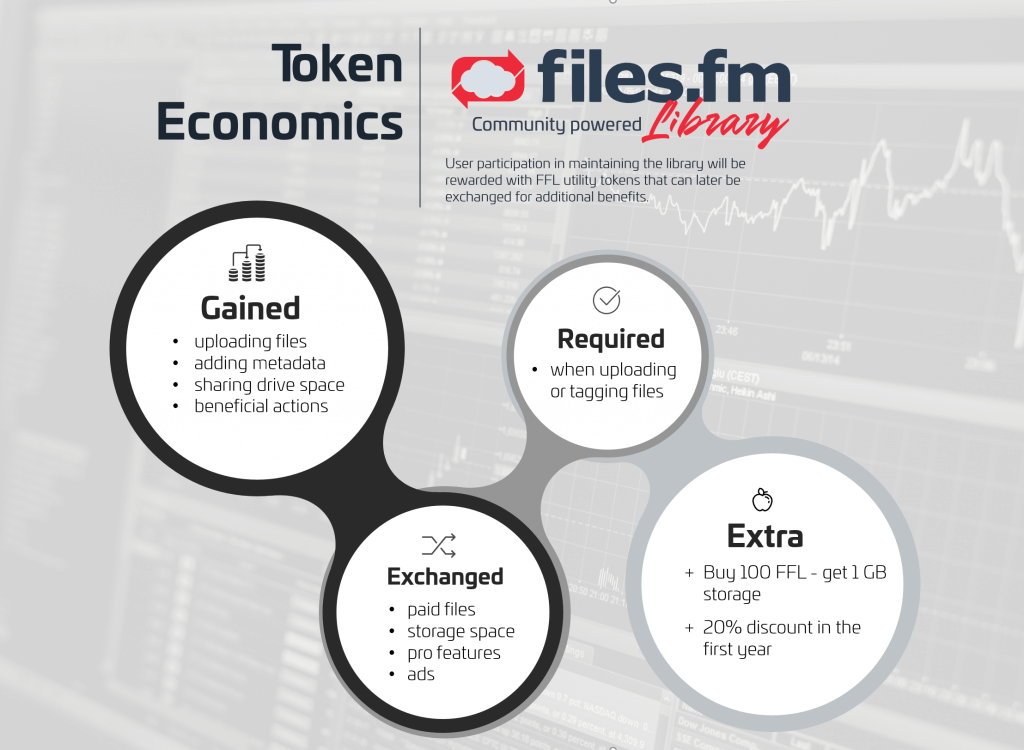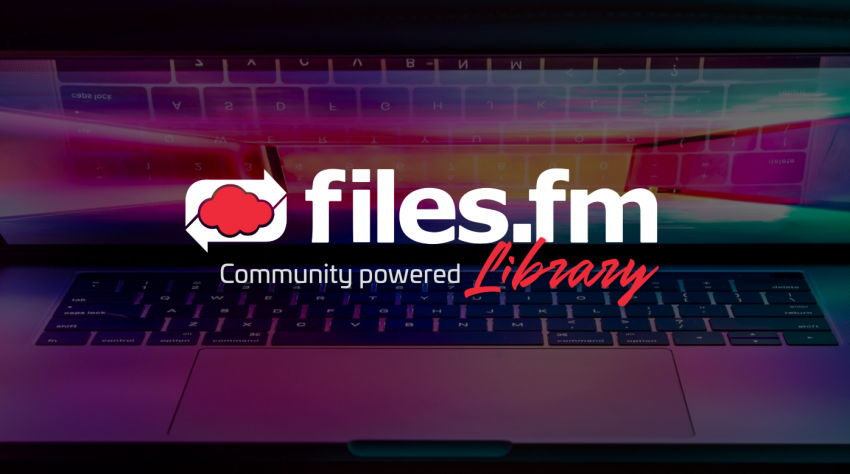In one of our first posts we outlined the most notable problems with online file storage and sharing and briefly mentioned our ambitious plan to solve them by creating the Files.fm Library. In this article we will briefly introduce the main concepts and technological aspects involved in creating it.
Files.fm Library will combine all existing files.fm services into one large-scale file catalogue and marketplace, storing both copyright-free materials that will be accessible to everyone and copyrighted files that users will be able to buy straight from the owners. We will do this by supplementing existing files.fm infrastructure with P2P downloads straight from the web browser, a blockchain payment system, an advanced AI search engine, and a rewards system for users who upload, seed, tag and sort files.
Files.fm Library (FFL) will be a free to use hybrid-decentralized data library, built and maintained through the collective efforts of the community. FFL aims to provide space for anyone to upload their files for future preservation, and by adding correct metatags any file in the database can be easily found and accessed. We will store both copyright-free files that will be available for everyone and copyrighted files that users will be able to buy. All IP content will be logged on blockchain and users will decide about file or tag quality by reaching consensus on blockchain.
Current situation
There are several existing public digital file storages, but they are strictly divided into copyright-free (Internet Archive, Gutenberg, PLOS, arXiv, etc.) and copyrighted (Netflix, Spotify, Amazon, etc.). We aim to bridge this gap by creating a single unified platform that will ensure correct copyrights and give the profits directly to the copyright holders. We envision a future where people won’t have to switch between numerous separate websites or apps to find and access the files they need. Instead all of them will be available in this one unified platform.
FFL will be hybrid-decentralized, which means it will use both centralized servers and decentralized P2P network for file storage. This is done because we aim to solve the biggest problems that these two networks have on their own — for centralized servers it is the heavy load slowing down file downloads and potential crashes or downtime, while files on P2P networks often don’t have any seeders. We use hybrid-decentralized technology to ensure fast download and upload speeds and file remaining accessible even if the server goes down or there are no peers. In addition, P2P networks are used to reduce the costs of servers, therefore making our service free for everyone. To make file accessibility more convenient, FFL users will be able to watch videos straight from the website without downloading them using hybrid-decentralized streaming technology.

Community-oriented
However, a single service can only do so much. If we were the only ones responsible for uploading and tagging the files, it would take countless man-hours and the process would be very long. This is why FFL will rely on community submissions and edits, however, to give people some incentive, we will reward them with tokens that can later be exchanged for copyrighted materials, such as movies, TV shows, books, music. By doing this we hope to create a thriving ecosystem, where users will upload, tag and seed the files in exchange for later legally watching movies for free.

John Backus analyzed P2P user incentivization in different file sharing networks as they attempted to solve the free-rider problem and discussed the possibility of introducing a token-based market in P2P networks:
File sharing protocols took off because everyone loves free stuff. Imagine if you could earn tokens for sharing a pre-released song from a popular artist. Consider how much better these networks would have been if people had to share some of their bandwidth and hard drive space in order to get their hands on a song or movie they can’t get elsewhere. I think file sharing protocols took off despite the market mechanisms not being solved.
John Backus — Fat protocols aren’t new: What blockchain can learn from p2p file sharing
In a way, this is what we are attempting to do — to incentivize people to commit their resources by rewarding them with free stuff — in a legal way and in more conveniently that most other existing alternatives.
However, for this plan to succeed we need some start-up funding to implement all the necessary technologies on a large scale basis. This is why files.fm is going to launch an ICO campaign in the coming weeks, where you can support our project and be the first to receive the FFM tokens.
If you are interested in our project, you can find out more here:
Website: https://files.fm/
Telegram: https://t.me/filesfm
Facebook: https://www.facebook.com/Filesfm/
Twitter: https://twitter.com/files_fm
LinkedIn: https://www.linkedin.com/company/files.fm/
